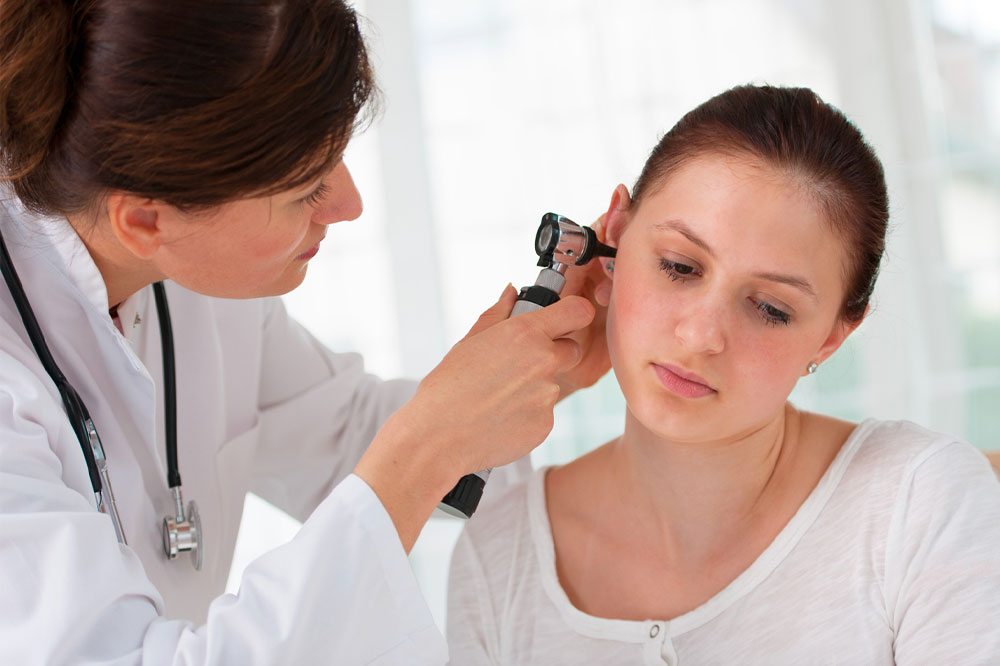14 Tips to Unclog a Clogged Ear
A feeling of congestion or heaviness in either or both ears, which can impair hearing and balance, is referred to as having clogged ears. If you are experiencing this, you might wonder how to unblock your ear . The signs of blocked ears might vary depending on the cause, but they frequently include pain or discomfort, a sense of pressure or fullness in the ear, diminished or muted hearing, tinnitus, and reduced or muffled hearing.

Why do ears clog?
Several things, including earwax buildup, fluid retention, sinus infections, allergies, and changes in air pressure, can cause it. Here are a few typical reasons for plugged ears:
- Building up of earwax: Earwax is a naturally occurring substance that shields the auditory canal from debris and microorganisms. However, excessive earwax buildup might result in a blockage and plugged ears.
- Fluid accumulation: Fluid collection can result in plugged ears and a sense of being overly full in the middle ear. Infections, allergies, or variations in air pressure can all contribute to this.
- Sinusitis: A sinus infection that causes swelling and discomfort in the head, especially the ears, is known as sinusitis.
- Allergies: Allergies can induce swelling and inflammation in the Eustachian tubes and nasal passages, obstructing ears.
- Fluctuations in air pressure: Changes in air pressure can result in plugged ears and can happen while flying, scuba diving, or driving through the mountains.
- Temporomandibular joint (TMJ) disorder: TMJ dysfunction can result in jaw pain and dysfunction, which can radiate to the ears and give the sensation of being obstructed in the ears.
- Other issues: A tumor in the ear or Meniere’s illness are two disorders that might result in congested ears.
Tips to unblock the ear
There are several ways how you can unblock your ear , depending on the cause of the blockage. Here are some methods that you can try out:
- Warm compress: Applying a warm compress to the affected ear can reduce inflammation and increase blood flow, which can help unclog the ear.
- Ear drops: Ear drops can help soften earwax and make it easier to remove the buildup, which can unblock the ear.
- Syringe: You can use a syringe filled with warm water to flush out any ear wax blocking your ear. However, you must be careful to avoid damaging your ears.
- Valsalva maneuver: Pinch your nose and gently blow out air through your nose. This can help equalize the pressure in your ears and unblock them.
- Chewing gum: Yawning or chewing gum can help release pressure and open blocked ears.
- Nasal decongestants: Using nasal decongestants might assist in reducing congestion and unclogging ears clogged by allergies or sinusitis.
- Ear irrigation kit: Consider using an ear irrigation kit to clean away wax and other materials from your ear canal. These kits use a mild stream of water.
- Steam: Inhaling steam from a hot bath or shower can assist in releasing mucus and congestion from the Eustachian tubes, enabling them to clear up and reduce pressure in the ears.
- Earwax removal: You can utilize an earwax removal kit or visit a doctor to remove any wax if earwax buildup is making your ear feel blocked.
- Massage: You can reduce pressure and encourage drainage by lightly stroking the area surrounding your ear.
- Chiropractic adjustment: In certain situations, a chiropractor can modify the jaw and neck bones to clear your ears and relieve pressure on the Eustachian tubes.
- Toynbee technique: Try the Toynbee technique by pinching your nose shut while swallowing. Doing so can reduce ear pressure and widen the Eustachian canals.
- Dehumidifier: Using a dehumidifier can assist in reducing humidity and stopping the accumulation of mucus in the nasal passages and the sinuses if your congested ears result from allergies or sinus problems.
- Keep hydrated: Drinking lots of water can encourage drainage and thin down mucus, which can help unclog your ears.
These are a few techniques and tips if you want to learn how to unclog your ear. Clogged ears must be treated immediately to prevent complications and improve general health and well-being. It is advised to consult a doctor if you have clogged ears to identify the root cause and receive the right treatment.
Effects of clogged ears
Blocking your ears might affect your general health and well-being in several ways. Here are a few possible outcomes if you don’t know how to unclog your ear:
- Hearing loss or sound muffling: Clogged ears can impair hearing or make sounds seem muffled. This may hamper your capacity for social interaction and communication.
- Tinnitus: Tinnitus is an ear condition with a persistent buzzing, pinging, or hissing sound. It could interfere with your ability to focus or sleep and be distracting.
- Pain or discomfort: Clogged ears can be painful or uncomfortable, which can be distracting and lower your quality of life.
- Dizziness: Dizziness or imbalance might result from clogged ears.
- Headaches : Pressure in the brain from clogged ears might result in headaches.
- Social isolation: Having blocked ears can make it challenging to interact with others and participate in social activities, which can cause social isolation and adversely affect your mental health.
We hope you found the solution to your question, “H ow to unblock my ear?”. Simple home remedies like ear drops, warm wraps, or nasal decongestants can typically be helpful to unclog ears. However, it is advised to consult a doctor if symptoms intensify or persist since this could point to a more serious medical issue that needs further assessment and treatment.